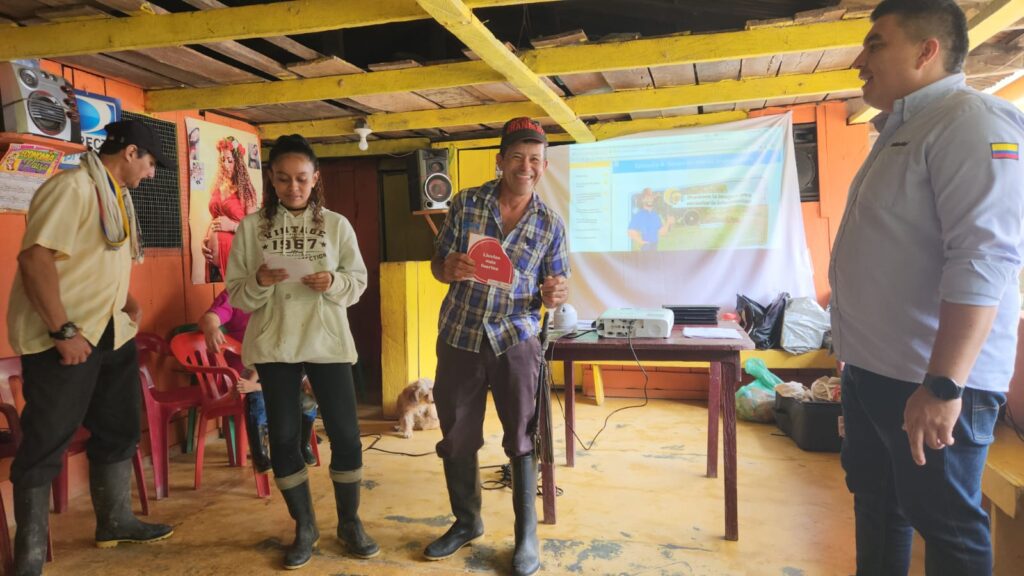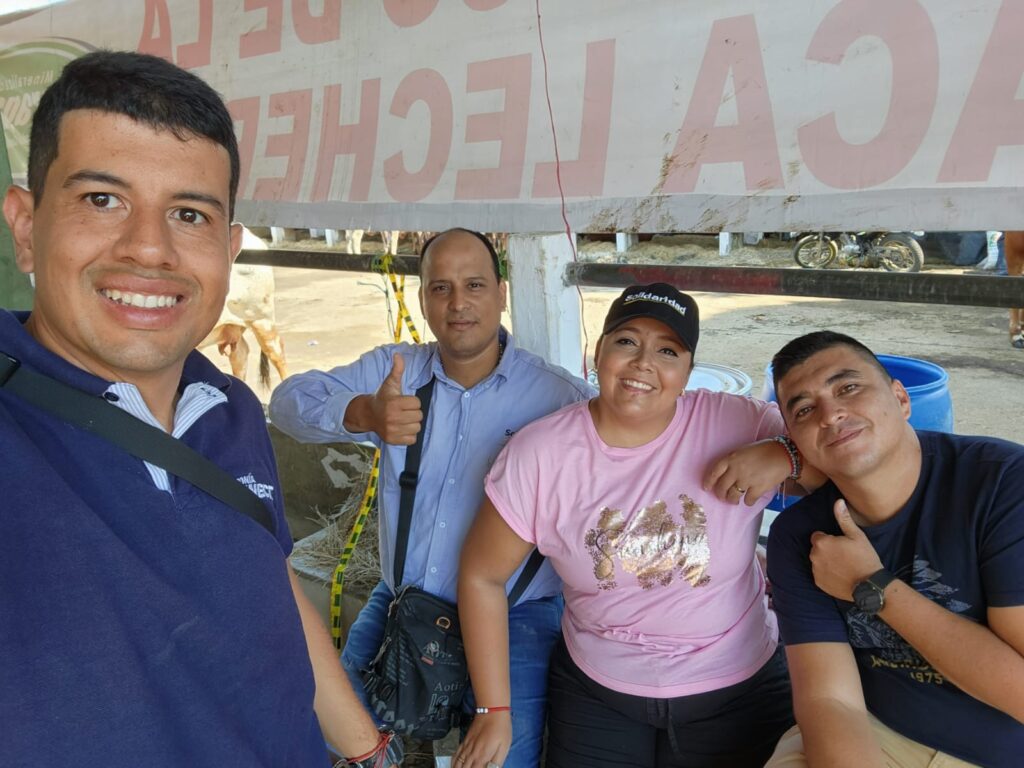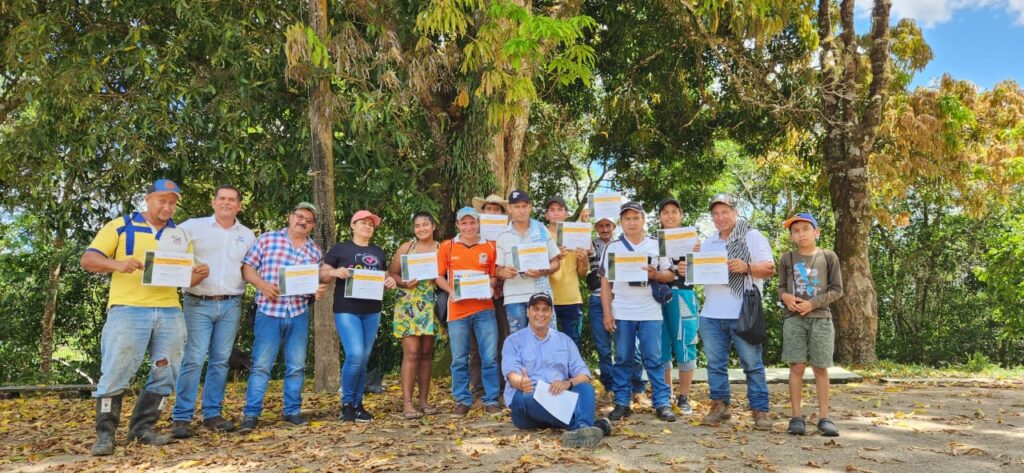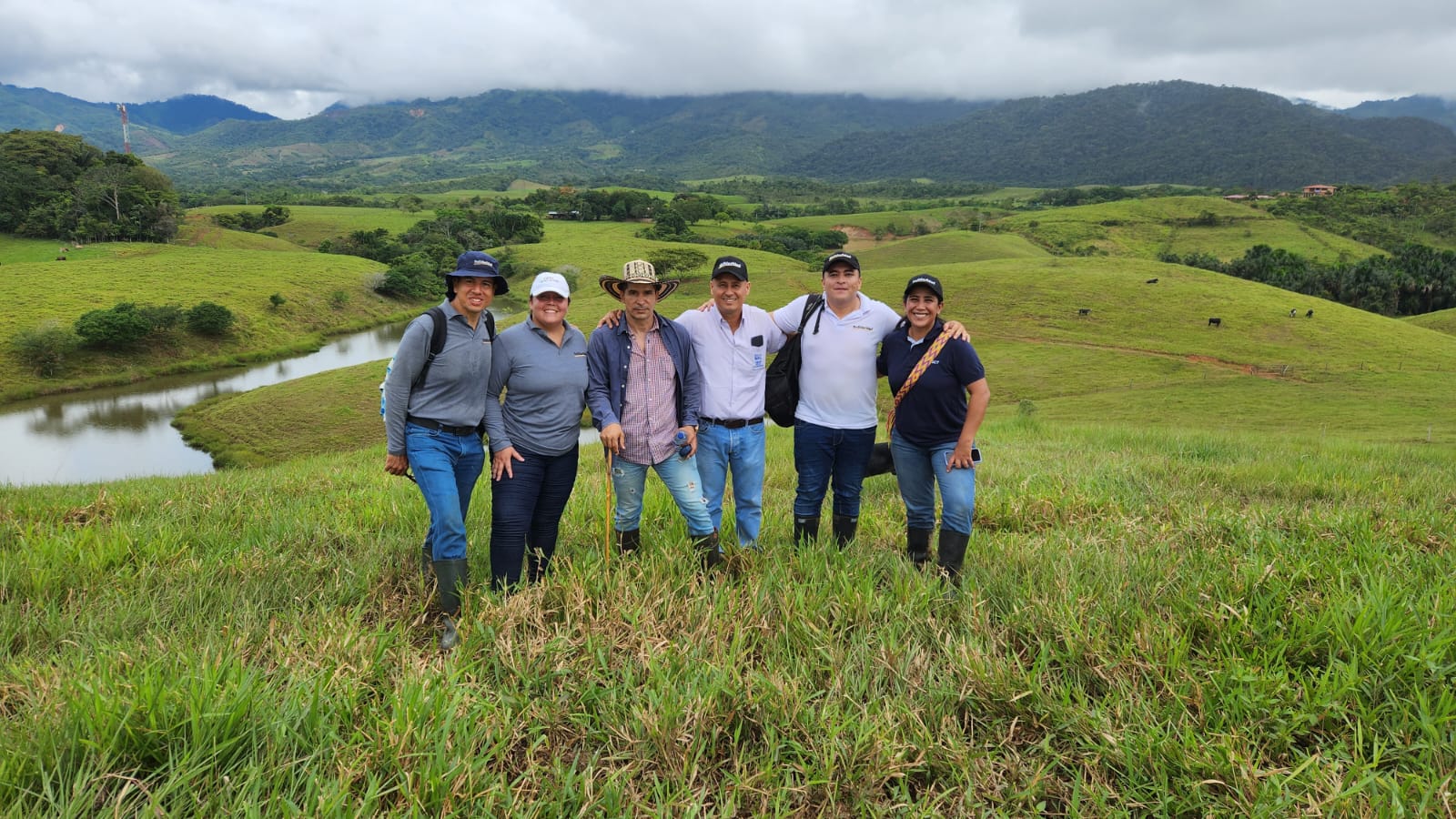Teaching through WhatsApp is possible thanks to Solidaridad’s Educational Solutions team. The group devised the strategy to bolster learning during the interim between field technician visits to each participating farm.
“The key for Amazonia Connect and other interventions that may come is to reach the people where they are, not waiting for them to reach out to you,” Yerlis comments. “They convince themselves and one day make the choice to not to slash and burn anymore, they even stop burning waste.”
The key for Amazonia Connect and other interventions that may come is to reach the people where they are, not waiting for them to reach out to you.
Yerlis Barón, education manager in the livestock programme for Amazonia Connect.
Amazonia Connect is a five-year partnership between USAID, Solidaridad, Earth Innovation Institute, National Wildlife Federation, and the University of Wisconsin- Madison. Together with USAID’s Amazon Regional Environment Program, producers, companies, local governments and financial institutions, Amazonia Connect promotes and scales the adoption of low-emission commodity production to improve biodiversity conservation and climate resilience in Brazil, Colombia, and Peru.
Veterinarian by choice, teacher by passion
Yerlis inherited an interest in animal health from her veterinarian father. “Since I was a child I knew I would become either a doctor or a veterinarian,” says Yerlis on how she discovered her vocation at an early age.
When she finished high school, her first step was to submit an entry exam for veterinary medicine and resolved to opt for whichever institution accepted her first. The Universidad de Córdoba answered and she left for Montería, a new city where she didn’t know anyone. After completing her studies to become the first veterinarian in her town, Yerlis decided to shift the way she approaches her profession.
I focused on combining educational computer science, silvopasture systems, and feeding phases in cows.
Yerlis on how she discovered a new way to pursue her passion.
Yerlis moved to Caquetá with her family and her father, who was looking for more stable income and found it managing three livestock farms in Caqueta. For Yerlis, finding a job was more difficult, but she saw opportunity with Solidaridad’s Educational Solutions’ team in a WhatsApp group of 300 professionals who had lost jobs during the COVID pandemic.
“I had been rejected from several jobs because my daughters were young and employers feared that I would request a lot of days off,” Yerlis says. Even though the job listing at Solidaridad was targeting sociologies and professional educators, she was confident that her veterinary experience would make her an attractive hire. The prospect of working from home and being able to be close to her children was also exciting.
As a manager for Educational Solutions, Yerlis took charge of promoting the Low Emissions Livestock School, which is where the idea of introducing a learning module via WhatsApp was born, along with the character of “Professor Yerlis”.

Professor Yerlis delivering knowledge via WhatsApp
Today, Professor Yerlis serves up advice to more than 600 people on a one-to-one basis. The professor reminds them of topics already covered, and sends summaries of flyers and brochures outlining best practices. WhatsApp also allows Yerlis to reach a wider audience – including literate and non-literate producers – with voice or video messages. Her pupils range from those with a high school diploma to highly-educated teachers and psychologists with small or medium ranches.
Amazonia Connect helps livestock producers understand the importance of avoiding deforestation and how to adopt practices with a lower environmental impact that are still productive. The School of Low Emissions Livestock, available on Solidaridad’s Agrolearning platform, promotes the implementation of silvopastoral systems that integrate grazing areas and trees.
For her lessons, Professor Yerlis plans and prepares videos and messages that align with special dates or events related to environmental themes. She also aligns her lessons with the field officers, workshops and other interventions with the community. As Professor Yerlis, she plays a caring advisor offering friendly advice to anyone in need of the lessons she offers.
Yerlis is an eager witness to the ways that Amazonia Connect is transforming the lives of small- and medium-scale ranchers. She is thrilled when she receives pictures from the orchards on the producer’s farms, and she is moved by the videos where children support their parents, who can’t read, learn important lessons.

An opening to continue as ‘la Profesora Yerlis’
Limited connectivity, the lack of digital devices or the skills to use them, have not hindered Yerlis’ work to support field officers and ranchers. The mix of hands-on and virtual training is providing participants with more than just better livestock management practices, but complementary skills that allow them to communicate and follow lessons on their cellphones.
Yerlis and field officers have also tested traveling tablets. Over the course of three weeks, lead farmers – also known as community promoters – helped to get nine tablets loaded with Agrolearning lessons to remote areas with connectivity issues.
“We combined this approach with videos sent from my cell phone, explaining step by step how to complete the lessons and how to record evidence of adoption,” Yerlis said. The effort resulted in 45 people completing their courses, among them 29 women.
“We sent them their diplomas and prepared a graduation event with a cow themed cake and a present: headsets for their cellphones,” said Yerlis.

Yerlis is a critical link in the transformation occurring in the fields of Caqueta, where producers are traveling a road towards production in harmony with nature.
“The biggest satisfaction for me is, having been discriminated against for being a mom and for being a woman, and not being able to find a stable job since 2019, that Solidaridad allowed me to be myself. Now my youngest daughter is turning six. I’m a present mother, a professional, and I’m contributing my little grain of sand to education. By doing this I can tell other mothers to try it, that it is possible”.

